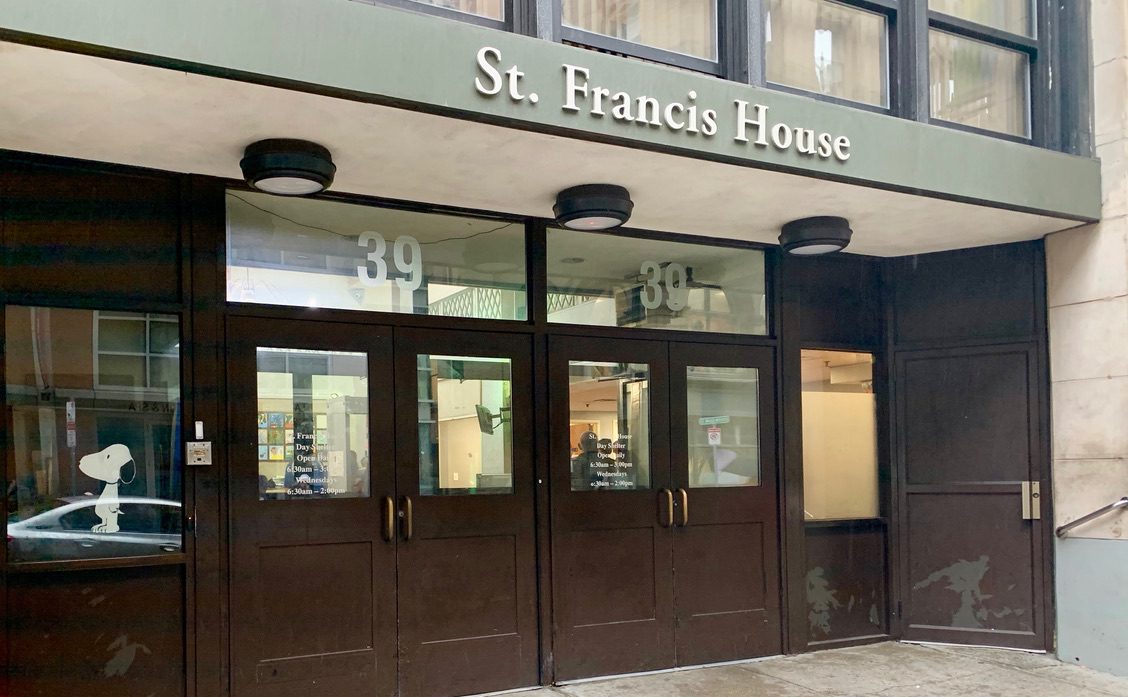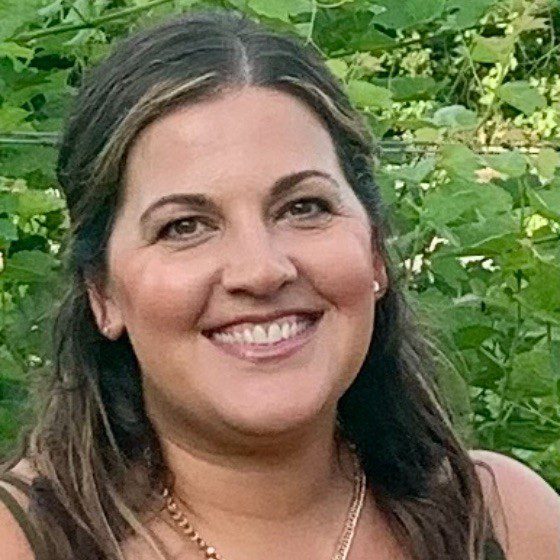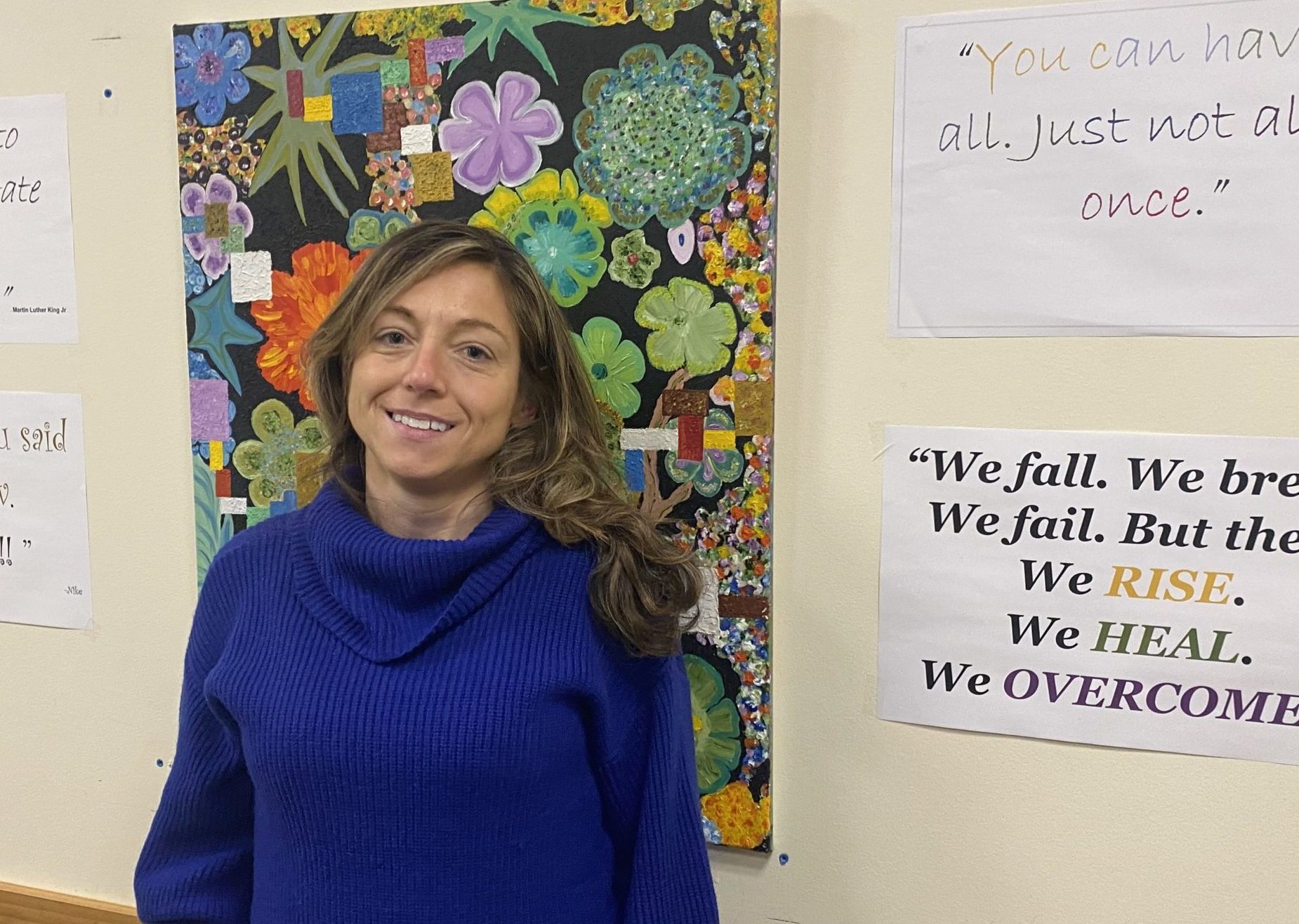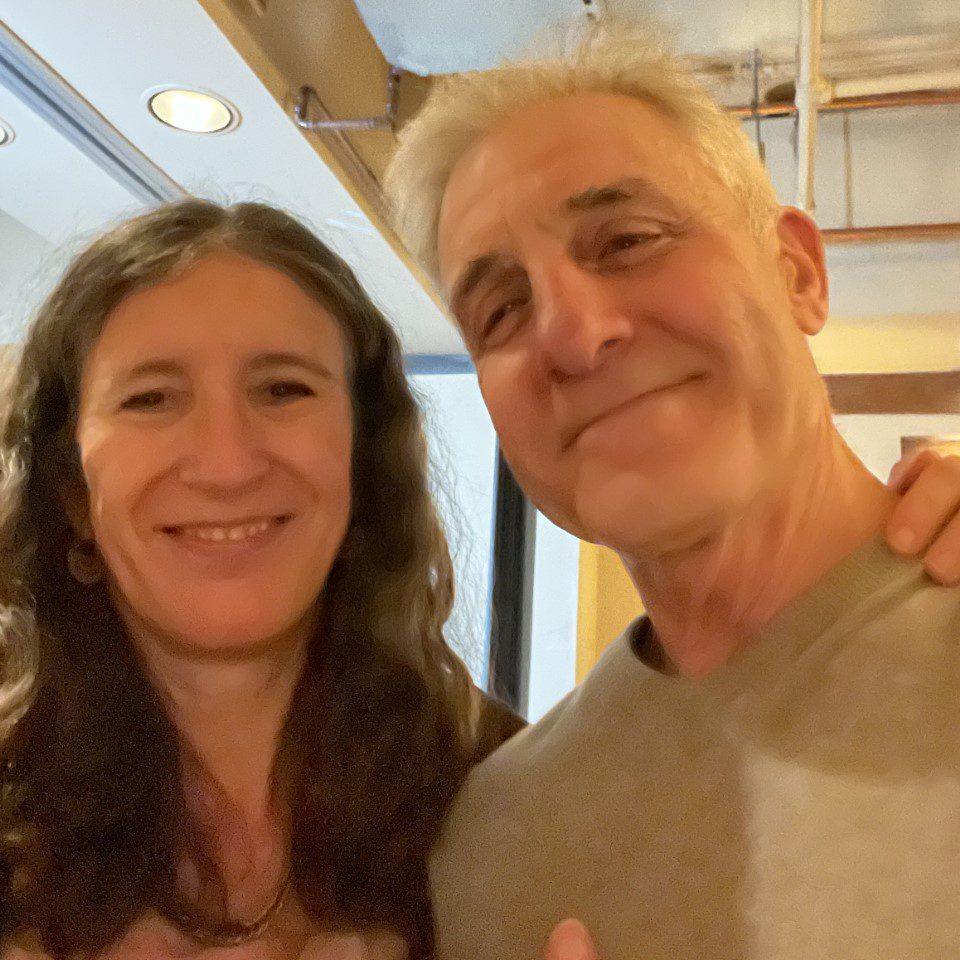Frede started at St. Francis House five years ago as a member of our Community Engagement & Safety team. Since then, he has transitioned into a Guest Engagement Liaison and now into the role of Bilingual Case Manager. Co-workers in his department call him the “unofficial ambassador for immigrants” at St. Francis House, since his skills in four different languages make it possible for him to work with clients from numerous backgrounds and nationalities. Even when his work gets stressful, Frede makes sure to spread positive energy to his co-workers and especially St. Francis House guests whenever he can.
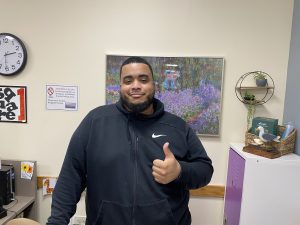
As a Guest Engagement Liaison, I started seeing what Case Managers were doing and got more curious about their job and what more we can do to help. Some Case Managers would show me what we do as far as housing. It caught my interest and eventually I took a shot at it myself.
How long have you been with St. Francis House? What do you do here?
I started in January 2017. As years went by working here, I started picking up the routine. I ended up learning a lot, not just from the Guest Engagement Liaisons but also from the Harm Reduction team, and from the CES team who are building rapports with people and saving lives, honestly.
I’ve been in this role since September of last year. Primarily, I work with the Hispanic Portuguese and Cape Verdean communities. I speak about three to four languages. I’m Cape Verdean so we speak Creole and Portuguese but it’s easy for me to understand Spanish. Most of my clients and caseloads are Hispanic. The work I do with my clients often focuses on extra help with immigration and acquiring the right documentation. Especially when it comes to applying to housing programs and different opportunities, valid documentation is required. It’s nearly impossible to get one thing without the other. You might need a birth certificate to get your state ID, but if you don’t have your State ID you can’t request your birth certificate online. There are other channels where folks can advocate or help but it’s extremely overwhelming. It’s a patience game.
I’m learning a lot from my current Case Manager role but I’m also learning more about immigration and how to get our clients more resources.
Is there a part of your job you enjoy the most?
It is interesting to learn about the specific background of each client, like something interesting about their past life before they became homeless, started experiencing mental illness, or struggled with addiction.
I work with many amazing co-workers who try to help each other; they have each other’s back and uplift each other through tough or stressful situations- because it really does get stressful at times.
It’s sad when you walk around and see some of our clients look unbothered because they’ve gone through so much. Their usual perception is “well they don’t care so why am I going to waste my time talking about myself.” So, I try to bring that out of them by saying things like, “Tell me more about you,” or I tease them and joke with them to try to learn more about them. Then eventually when you see more familiar friendly faces, they open up.
By being a case manager I’m able to do that on a one to one level rather than with a quick one or two minute conversation downstairs in the lobby. I get to sit down and actually explore more about the clients I work with so I can gain a thorough understanding of what they’re going through and what I can do to help or, if I can’t help, who I can contact to get them help.
Do you have anything you wish people knew about your department?
Everybody’s role is important and fills in gaps so that we can tackle every issue our clients are facing. We have to make sure they’re fed, clothed, and feel like they’re in a comfortable place so case workers are able to reach out and offer more help.
Generally speaking it’s a very hard job to keep up with. I believe every single one of us who is engaging with our clients has a certain level of mental fortitude. That’s the awesome shield that goes unnoticed in all of us. It’s not just being able to do your job, it’s being able to understand the negative that comes with the job and filter it. We are masters of filtering the negativity to be able to provide some sort of a safe haven for our clients here. I think that’s the best part of the job, honestly. It’s cliché I guess, but it’s a nice thing I see in a lot of us here.
There’s a light of hope that we get to try to find and use as a guide to help our guests. We’re not perfect. We’re always trying to find the best way and trying to improve but it takes time. That’s what I like about it. We’ keep trying. If we can’t accomplish it today, we’ll accomplish it tomorrow that’s the attitude we all share.
